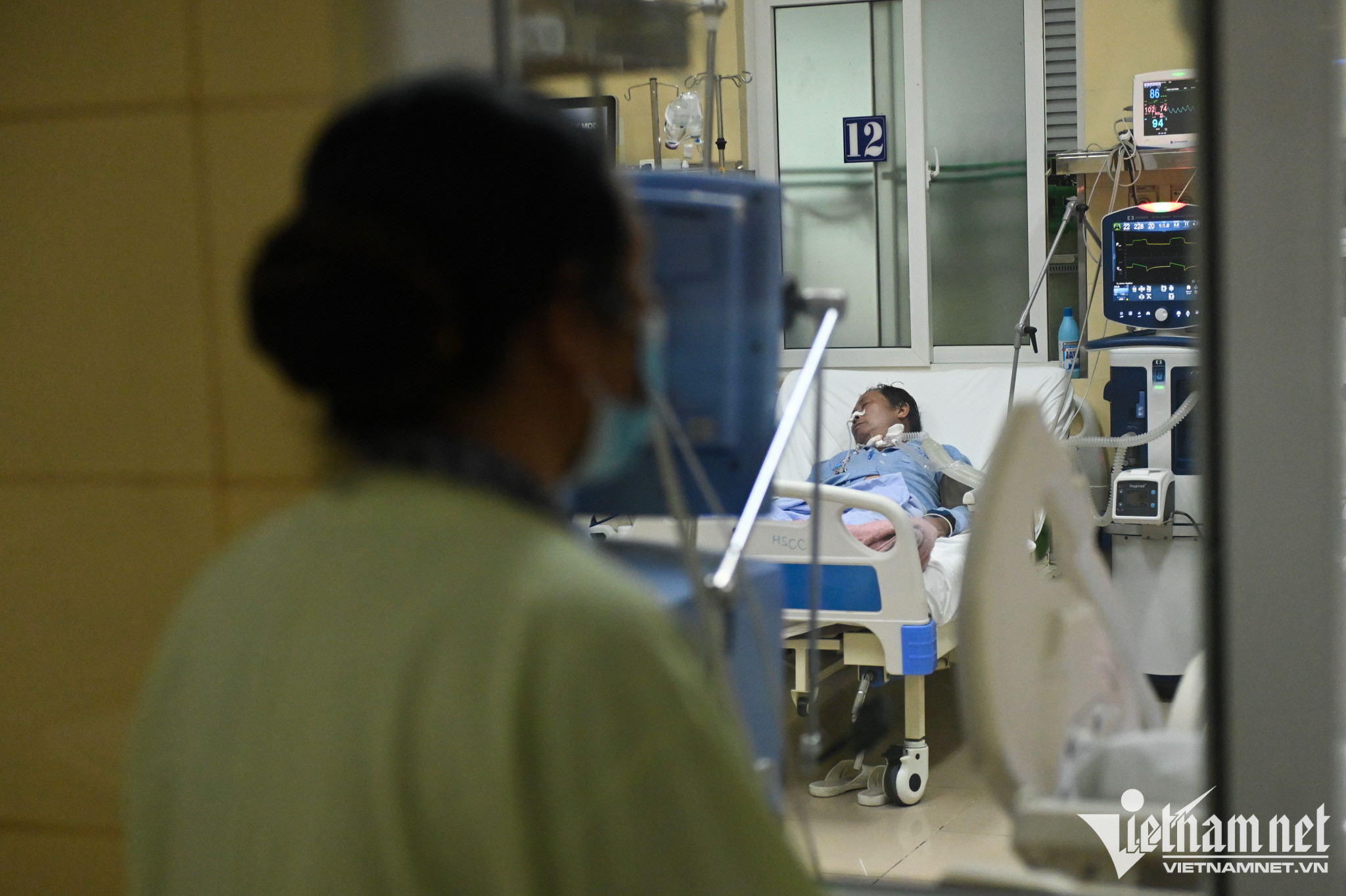
N.V.T, 61, from Ha Tinh province, received a retirement pension book last month, and was hospitalized last week because his diabetes had progressed with complications on the eyes and feet. In addition, hypertension and chronic obstructive pulmonary disease torment him regularly.
“I still have not enjoyed the leisure time of the retirement period when I have to spend days in hospitals,” he said.
His two daughters have to take turns off from work and take care of him at the hospital. As their annual leave has run out, they have had to hire a nurse to stay with him during working hours, while they sleep with the father at the hospital at night.
T said he feels that he is at fault as his disease has upset the lives of the two daughters. They cannot go to the office regularly, cannot take care of their children, and have to spend big money to pay for medical services and medicine, while their incomes are modest.
Anh from the Central Geriatric Hospital said the elderly suffer from three diseases at least. These are chronic diseases which require long-time, or even lifetime medical treatment.
According to the General Department of Population under the Ministry of Health (MOH), Vietnamese life expectancy is 73.7 years (71 for men and 76.4 for women), which is higher than the average figures in the world and the region. In some localities such as HCM City, Dong Nai, Da Nang and Ba Ria - Vung Tau, the average life expectancy is over 76.
Despite the high life expectancy, the number of years of healthy life of Vietnamese people is still modest (63.2 for men and 70 for women).
This leads to a series of problems. For example, this reduces the ability to participate in social activities, reduces additional income, increases costs for medical treatment, and thereby reduces life quality.
Many people, even at 60, incur many diseases at the same time, which is the consequence of their abuse of cigarettes and liquor at a young age. They might have suffered from the diseases at a young age, but did not go to hospital for treatment.
If they don’t have stable income sources or social allowances, but rely on children and grandparents, the prolonged illness will put a heavy burden on the "sandwich generation".
Moreover, this will pose other challenges when young people have to spend time taking care of the elderly and have less time to work and devote themselves to society. In general, the productivity of society will be affected because a large portion of resources will have to be spent on old people.
The danger of ‘getting old before becoming rich’
The Vietnamese population has nearly reached 100 million and Vietnam is listed among the 15 most populous countries. Therefore, it has advantages of a large workforce and domestic market. However, it is also facing a problem: Vietnam is among the fastest aging countries in the world.
According to Nguyen Thi Ngoc Lan, deputy director of the General Department of Population under the Ministry of Health (MOH), in 2009, there was one person aged 60 or more for every 11 persons, but in 2029, the ratio will be 6:1.
Meanwhile, the General Statistics Office (GSO) predicts that by 2036, the number of Vietnamese aged 65 or higher will account for 14 percent of the total population.
Vo Thu